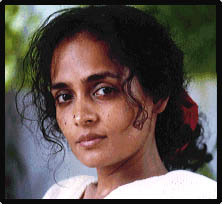
Born in 1911, Golding was the son of an English schoolmaster, a many-talented man who believed strongly in science and rational thought. Golding often described his father's overwhelming influence on his life. The author graduated from Oxford University in 1935 and spent four years (later described by Golding as having been "wasted") writing, acting,. and producing for a next small London theater. Golding himself became schoolmaster for a year, after marrying Ann Brookfield in 1939 and before entering the British Royal Navy in 1940.
Golding had switched his major from to English literature after two years in college a crucial change that marked the beginning of Golding's disillusion with the rationalism of his father. The single event in Golding's life that most affected his writing of Lord of the Flies, however, was probably his service in World war II. Raised in the sheltered environment of a private English School, Golding was unprepared for the violence unleashed by the war. Joining the Navy, he was injured in an accident involving detonators early in the war, but later was given command of a small rocket-launching craft. Golding was present at the sinking of the Bismarck—the crown ship of the German Navy—and also took part in the D-Day landings in France in June 1944. He later described his experience in the war as one in which “one had one’s nose rubbed m the human condition. After the war Golding returned to teaching English and philosophy at the same school where he had begun his teaching career. During the a nine years, from 1945 until 1954, he wrote three novels rejected for their derivative nature before finally getting the idea for Lord of the Flies after reading a bedtime boys adventure story to his small children. Golding wondered out loud to his wife whether it would be a good idea to write such a story but to let the characters "behave as they really would." His wife thought that would be a "first class idea." With that encouragement, Golding found that writing the story, the ideas for which had been germinating in his mind for some time, was simply a matter of getting it down on paper.
Lord of the Flies
William Golding's classic tale about a group of English schoolboys who are plane-wrecked on a deserted island is just as chilling and relevant today as when it was first published in 1954. At first, the stranded boys cooperate, attempting to gather food, make shelters, and maintain signal fires. Overseeing their efforts are Ralph, "the boy with fair hair," and Piggy, Ralph's chubby, wisdom-dispensing sidekick whose thick spectacles come in handy for lighting fires. Although Ralph tries to impose order and delegate responsibility, there are many in their number who would rather swim, play, or hunt the island's wild pig population. Soon Ralph's rules are being ignored or challenged outright. His fiercest antagonist is Jack, the redheaded leader of the pig hunters, who manages to lure away many of the boys to join his band of painted savages. The situation deteriorates as the trappings of civilization continue to fall away, until Ralph discovers that instead of being hunters, he and Piggy have become the hunted: "He forgot his words, his hunger and thirst, and became fear; hopeless fear on flying feet." Golding's gripping novel explores the boundary between human reason and animal instinct, all on the brutal playing field of adolescent competition




